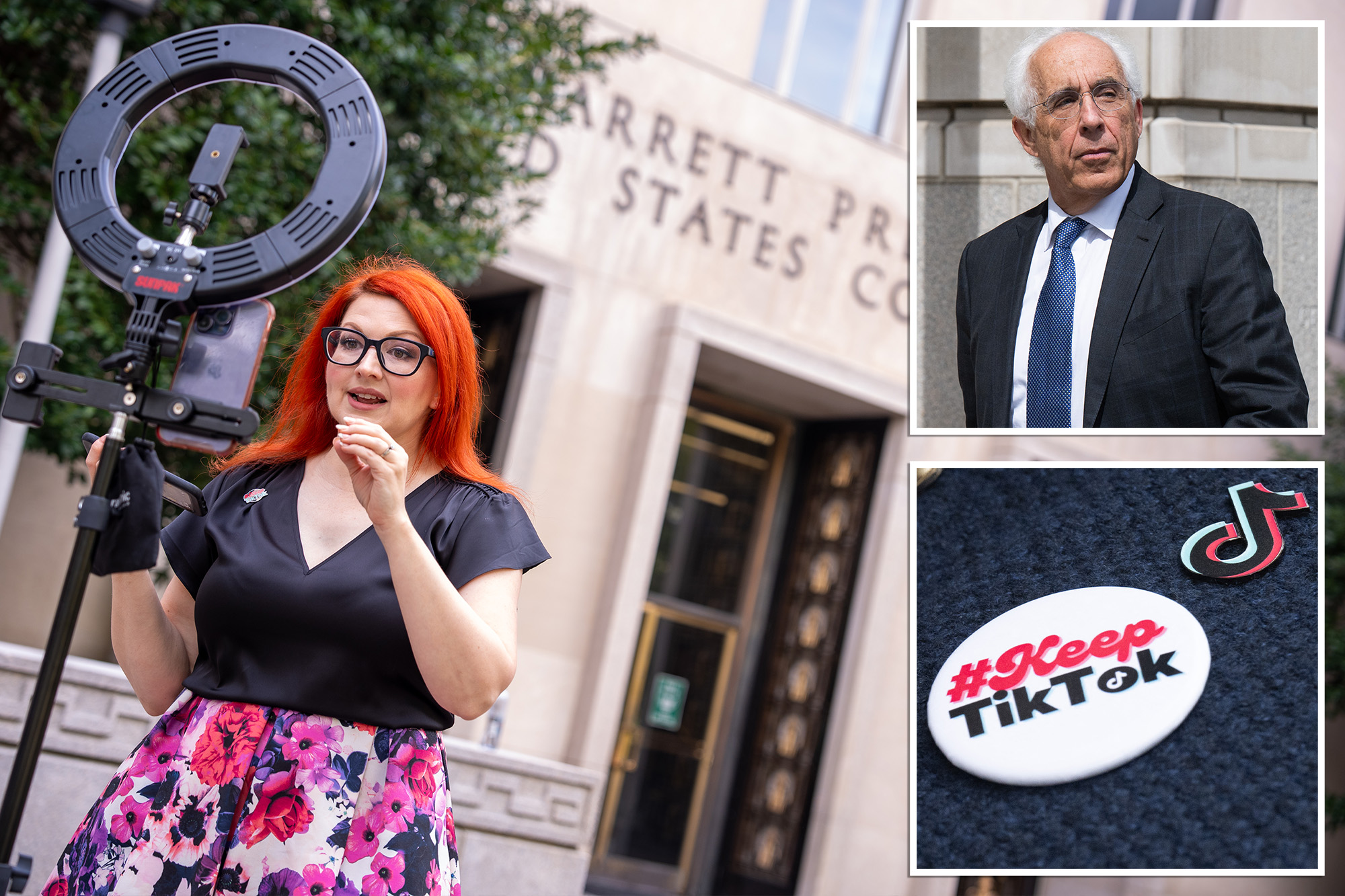
TikTok faced pointed questions from a US appeals court on Monday as the company tries to block a law that would force China-based ByteDance to sell the video-sharing app by January. 19 or face a total ban.
A lawyer for TikTok argued before a three-judge panel that the law, signed by President Joe Biden in April, was a violation of the First Amendment.
“The law before this court is unprecedented and its effect would be staggering,” TikTok’s outside lawyer, Andrew Pincus, said during the closely watched hearing.
“For the first time in history, Congress has specifically targeted a specific US speaker to ban his speech and the speech of 170 million Americans,” Pincus added.
Meanwhile, the feds doubled down on their argument that the risk of the app being manipulated by the Chinese government poses an unacceptable national security risk.
TikTok, led by CEO Shou Chew, and the DOJ have asked the US Court of Appeals for the District of Columbia to issue a decision by December. 6.
The two-hour hearing, which also included testimony from TikTok creators who say a ban would hurt their livelihoods, ended with no clear indication of how the panel would rule.
However, the justices appeared unconvinced by key elements of TikTok’s position, legal experts told The Post.
At one point, Judge Sri Srinivasan dissented against TikTok’s Pincus, noting that the case hinged on the app’s China-based ownership. He raised the hypothetical question of whether Congress would be allowed to ban a foreign adversary’s ownership of a media outlet within the US during a time of war.
Elsewhere, Judge Neomi Rao asserted that TikTok was relying on a “very strange framework” to overturn the law by essentially ignoring the fact that Congress had “actually passed a law” and instead treating it as if a federal agency.
“I expected TikTok to face an uphill battle in this hearing, but the question they faced was much more critical than expected,” said Gus Hurwitz, a senior fellow at the University of Pennsylvania Carey School of Law. “The justices seemed quite skeptical that the law deserves strict scrutiny, or even intermediate scrutiny.”
“It’s hard to make predictions about these things, but after today’s argument I’d say the smart money is on a unanimous and very clear loss for TikTok,” added Hurwitz, who noted that the judges “seem to took the national security arguments very seriously.”
Gautam Hans, a law professor and associate director of the First Amendment Clinic at Cornell University, said the panel was “tough on TikTok.”
Courts are generally deferential to Congress and careful not to interfere too much in matters involving foreign affairs, Hans said. The justices appeared to focus on whether foreign ownership of TikTok overcomes potential First Amendment concerns, he added.
“The government tried to downplay the talking points of this case and that obviously gained some traction with the panel,” Hans added.
Despite the decision of the trial body, the case is expected to end up in the Supreme Court.
“The law makes it imperative that this court rule soon, and it’s hard to imagine that the loser won’t seek Supreme Court review before the deadline,” said Alan Morrison, a constitutional law expert at George Washington University Law School. . “I believe that the court will examine the case within this deadline.
The DOJ has argued that the sell-or-ban law is rooted in pressing national security concerns related to TikTok’s Chinese ownership.
During the hearing, the feds raised the possibility that China could change TikTok’s algorithm for nefarious purposes.
“It’s farcical to suggest that with these two billion lines of code — 40 times the size of the entire Windows operating system, changed 1,000 times every day — that somehow we’re going to find out that they changed it,” the attorney for DOJ’s Daniel. Tenny said.
In filings in July, the feds alleged that TikTok was able to collect sensitive data about issues such as gun control and abortion from its users and cited risks that Beijing could weaponize the app to suit its purposes.
The feds also contend that TikTok’s parent ByteDance does not qualify for the same First Amendment protections afforded to US firms.
In addition to First Amendment concerns, TikTok has argued that a sale is not possible within the bill’s limited time frame.
Former Treasury Secretary Steven Mnuchin is among US investors who said they would be interested in buying TikTok if it were available. As The Post reported, Mnuchin has been talking to potential partners about a plan to rebuild TikTok’s recommendation algorithm in the US.
The battle for TikTok’s fate is taking place against the backdrop of the 2024 presidential election. Both Donald Trump and Kamala Harris are active on the platform.
The Biden-Harris administration signed the stripping bill into law.
Trump initially supported a ban on TikTok, but has since reversed his stance, arguing that the bill risked transferring more power and market control to Instagram parent Meta and its boss Mark Zuckerberg.
By postal wire
#TikTok #fire #appeals #court #judges #challenge #sellorban #bill
Image Source : nypost.com